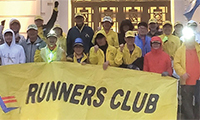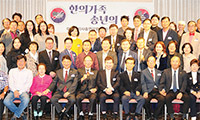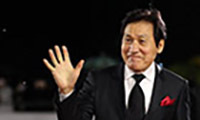You don’t have to like Singapore to admire it. Once you begin to admire it, of course, you may discover in yourself a sneaking affection. The achievement of Lee Kuan Yew, the nation’s founding father, who died Monday at the age of 91, is immense. The 20th century produced few greater statesmen and perhaps no greater pragmatist.
The measure of that achievement is that the ingredients of disaster abounded in Singapore, a country that is “not supposed to exist and cannot exist,” as Lee said in a 2007 interview with The New York Times. “We don’t have the ingredients of a nation,” he noted, “the elementary factors: a homogeneous population, common language, common culture and common destiny.” Instead, it had a combustible ethnic and religious hodgepodge of Chinese, Malays and Indians gathered in a city-state of no natural resources.
Yet Lee made it work, where many nations with far more of those attributes of nationhood . Argentina prominent among them . failed, and where, from the Balkans to the Middle East, sectarian differences have proved insurmountable and often the catalyst of war and national unraveling.
The fact that the elements for cataclysm exist does not mean that cataclysm is inevitable. Lee demonstrated this in an age where the general cacophony, and the need to manage and spin every political minute, makes statesmanship ever more elusive. The determining factor is leadership. What defines leadership above all is conviction, discipline in the pursuit of a goal, adaptability in the interest of the general good, and far-sightedness.
Lee’s only religion was pragmatism, of which religion (as generally understood) is the enemy, because, to some adherents, it offers revealed truths that are fact-resistant. Any ideology that abhors facts is problematic. (If you believe land is yours because it was deeded to you in the Bible, for example, but other people live there and have for centuries, you have an issue pregnant with violence.) Lee had one basic yardstick for policy: Does it work? It was the criterion of a forward-looking man for whom history was instructive but not imprisoning. He abhorred victimhood (an excuse for sloppy thinking and nationalist delusion) and corruption. He prized opportunity, meritocracy, the work ethic of the immigrant and education.
Western democracy was not for him. It was too volatile for a nation that had to be forged and then fast-forwarded to prosperity. He was authoritarian, harsh when necessary. Free speech and political opposition were generally suppressed; the only liberalism was of the economic variety. Lee tapped into an Asian and Confucian inclination to place the communal good above individual rights; he also cowed Singaporeans into fear. Overall, it worked. Singapore became a booming commercial and banking center. Prosperity elided differences, even if the yawning gap between rich and poor is a growing issue, as throughout the world.
There is no single model for all humankind, even if there is a universal aspiration for freedom and the means to enjoy it. Technological hyperconnectedness does not produce political consensus. Pragmatism also involves accepting this, weighing the good against the bad (while standing against the heinous) and exercising patience.
The Singaporean miracle became an Asian reference. If Asia has been pragmatic about conflict . notably in the handling of tensions between India and China . it owes much to Lee. China’s model . authoritarian, free-market, economically open but politically closed . was plainly influenced by Lee’s Singapore. Narendra Modi’s push to clean up India has led to talk of an Indian Lee Kuan Yew. One measure of Lee’s greatness is that, as Singapore’s former ambassador to the United Nations, Tommy Koh, put it to me in an email, the strong institutions he planted ensure that “his passing will have no negative impact on the future of Singapore.”
How much more demanding of open political systems will prosperous Asians be? We will see, but I would not bet on rapid change. Desirability does not equal necessity, at least not yet. Lee made one other big Asian contribution: He valued American power, believed in its stabilizing regional influence. He was not an American declinist, once telling the political scientist Joseph Nye that China could draw on a talent pool of 1.3 billion people, but the United States could draw on the world’s seven billion people and recombine them in a diverse culture that exudes creativity in a way that ethnic Han nationalism cannot.
In this, too, Lee was right.
스마터리빙
more [ 건강]
[ 건강]이제 혈관 건강도 챙기자!
[현대해운]우리 눈에 보이지 않기 때문에 혈관 건강을 챙기는 것은 결코 쉽지 않은데요. 여러분은 혈관 건강을 유지하기 위해 어떤 노력을 하시나요?
 [ 건강]
[ 건강]내 몸이 건강해지는 과일궁합
 [ 라이프]
[ 라이프]벌레야 물럿거라! 천연 해충제 만들기
 [ 건강]
[ 건강]혈압 낮추는데 좋은 식품
[현대해운]혈관 건강은 주로 노화가 진행되면서 지켜야 할 문제라고 인식되어 왔습니다. 최근 생활 패턴과 식생활의 변화로 혈관의 노화 진행이 빨라지고
사람·사람들
more
LA 러너스클럽 새해맞이 등반 행사
LA 러너스클럽(회장 대니얼 임)은 지난 1일 새해맞이 그리피스팍 등반 행사를 가졌다. 이날 회원 30여 명은 쏟아지는 비 속에서도 그리피스팍…

미주한의사총연 송년행사
미주한의사총연합회(회장 조본환·이사장 서영수) 송년회가 지난달 14일 LA 옥스포드 팔레스 호텔에서 열렸다. 이날 행사에서는 프란시스코 김 캘…
[인터뷰-문경환 한인회장] “캔자스, 이민자들에 … 1
“캔자스시티는 삶의 속도와 기회의 균형이 잘 맞는 도시입니다. 제2의 인생을 시작하기에 더없이 좋은 곳이죠.”29일 본보를 방문한 문경환(61…
일사회 창립 14주년 기념식 및 송년행사
전·현직 민주평통자문위원들의 모임인 일사회(회장 박철웅)는 지난 16일 용수산에서 창립 14주년 기념식 및 송년회를 개최했다. 이날 행사에는 …
LA평통 통일전략분과 상견례
LA 평통(회장 장병우) 통일전략분과(위원장 이정현)는 지난 27일 형제갈비에서 상견례 겸 간담회를 개최했다. 이날 모임에서는 위원 간 교류를…
많이 본 기사
- 마두로 축출에 갈라진 지구촌… “국제법 위반” vs “환영”
- 트럼프, 베네수엘라 전격 군사작전… 마두로 ‘축출’
- 캘리포니아 ‘직장 내 권리 알림법’ 시행 돌입
- 가주 DMV 리얼 ID 발급 ‘전산 오류’
- [마두로 체포 막전막후] ‘델타포스’ 침투 5분만에 전광석화 체포… 은신처 대피 못해
- 베네수엘라 권한대행, 미국에 ‘협력’ 제안… “존중하는 관계로”
- 연방 항소법원 “총기 공개적 휴대 금지 가주법 위헌”
- ‘길잃은’ 中 중남미정책…일대일로에 직격탄
- [신년 집중기획/2026 새해 이렇게 바뀐다] 이민 제도 5대 변화… 영주권자까지도 입국시 안면인식 생체정보 수집
- 李대통령 “공급망 예측 어려워져…韓中 경제협력 새항로 찾아야”
- 가주, 개인정보 보호법 ‘초강수’
- ‘국민 배우’ 안성기 별세 혈액암 투병, 향년 74세
- 트럼프 “우리가 베네수 맡고 있다…선거前 국가재건이 먼저”
- 메디케이드 정보 이민국 공유 ‘허용’
- 이혜훈 기획예산처 장관 후보자, 재산 175억7천만원 신고
- 한인타운 인근 상가서 묻지마 총격 2명 사상
- LAX 또 항공편 대거 취소·지연 사태
- 입국 제한 확대… 추가 20개국 이민 신청 전면 중단
- 황희찬 ‘PK 1골+1도움’… 울버햄프턴, 개막 20경기 만에 첫 승
- LA 총영사관 시무식… “민원 서비스 강화”
- LA 평통 내일 시무식
- “트럼프 폭주… 달러 패권 흔들”
- LA 러너스클럽 새해맞이 등반 행사
- [부음] 오동균 장로
- ‘브라운 50점’ 보스턴, 클리퍼스 꺾고 3연승
- 일본프로야구 홈런왕 오카모토 토론토와 4년 6천만달러 계약
- 역대 최고령 45세 윌리엄스 호주오픈 여단식 본선 출전
- Crinks 세력이 크게 꺾이는 그런 해가…
- 30년 모기지, 최저치 6.15%로 지난해 마감
- “올해도 미 성장 지속… S&P 500 두 자릿수↑”
- 소비자들 지갑 열까?… 올해 소비 전망 대체로 ‘양호’
- 셀트리온, 미 뉴저지 생산시설 인수… CDMO 영토 넓힌다
- 뉴욕증시, 새해 첫 거래 혼조세 마감
- 지표 보면 경제 알 수 있다… 경기 향방 가늠 10대 지표
- 2026년 새해 계획
- 가주 ‘억만장자세’ 추진… 파문 확산
- [이민법 칼럼] 시민권 박탈
- 세계 곳곳서 ‘美규탄’ 시위…마두로 아들 “거리로 나와달라”
- 오픈AI, 직원 주식보상도 ‘역대급’
- 백화점 ‘삭스피프스’… ‘챕터11’ 보호신청 검토
- 하늘길 막은 ‘불청객’… 인천공항 운항 피해 5년새 107건
- [재계 주요 그룹 총수 신년사] “불확실성의 일상화… 빠른 결단·선제적 대응이 열쇠”
- [데이빗 이그나티우스 칼럼] 신년맞이 퀴즈: 2026년에는 좋은 일이 있을까?
- 옐런 전 재무 “공공부채 상환부담 낮추려 통화정책 활용 우려”
- 베네수엘라, 세계 최대 매장량이라는데…국제유가도 영향받나
- 국회·세종 청사·항만 노출… ‘안티드론’ 구축률 10%도 안 돼
- 시간이 머무는 곳
- Art Major -Beyond the Canvas
- “올해 도약 원년”… 토종 AI유니콘, 글로벌 시장 정조준
- [만화경] 집권 2년 차 징크스
1/5지식톡

-
 미 육군 사관학교 West Poin…
0
미 육군 사관학교 West Poin…
0https://youtu.be/SxD8cEhNV6Q연락처:wpkapca@gmail.comJohn Choi: 714-716-6414West Point 합격증을 받으셨나요?미 육군사관학교 West Point 학부모 모…
-
 ☝️해외에서도 가능한 한국어 선생님…
0
☝️해외에서도 가능한 한국어 선생님…
0이 영상 하나면 충분합니다!♥️상담신청문의♥️☝️ 문의 폭주로 '선착순 상담'만 진행합니다.☎️ : 02-6213-9094✨카카오톡ID : @GOODEDU77 (@골뱅이 꼭 붙여주셔야합니다…
-
 테슬라 자동차 시트커버 장착
0
테슬라 자동차 시트커버 장착
0테슬라 시트커버, 사놓고 아직 못 씌우셨죠?장착이 생각보다 쉽지 않습니다.20년 경력 전문가에게 맡기세요 — 깔끔하고 딱 맞게 장착해드립니다!장착비용:앞좌석: $40뒷좌석: $60앞·뒷좌석 …
-
 식당용 부탄가스
0
식당용 부탄가스
0식당용 부탄가스 홀세일 합니다 로스앤젤레스 다운타운 픽업 가능 안녕 하세요?강아지 & 고양이 모든 애완동물 / 반려동물 식품 & 모든 애완동물/반려동물 관련 제품들 전문적으로 홀세일/취급하는 회사 입니다 100% …
-
 ACSL 국제 컴퓨터 과학 대회, …
0
ACSL 국제 컴퓨터 과학 대회, …
0웹사이트 : www.eduspot.co.kr 카카오톡 상담하기 : https://pf.kakao.com/_BEQWxb블로그 : https://blog.naver.com/eduspotmain안녕하세요, 에듀스팟입니다…
케이타운 1번가
오피니언

Crinks 세력이 크게 꺾이는 그런 해가…
 윤경환 서울경제 뉴욕 특파원
윤경환 서울경제 뉴욕 특파원 60년 만 ‘투자 귀재’ 없는 첫 주
 데이빗 이그나티우스 워싱턴포스트 칼럼니스트
데이빗 이그나티우스 워싱턴포스트 칼럼니스트 [데이빗 이그나티우스 칼럼] 신년맞이 퀴즈: 2026년에는 좋은 일이 있을까?
 조옥규 수필가
조옥규 수필가 시간이 머무는 곳
 홍병문 / 서울경제 논설위원
홍병문 / 서울경제 논설위원 [만화경] 집권 2년 차 징크스
 손영아 문화 칼럼니스트 / YASMA7 대표
손영아 문화 칼럼니스트 / YASMA7 대표 [손영아의 문화산책] ‘슈만의 연가’… 170년 전 멈춘 시간, 끝나지 않은 사랑
 김재천 서강대 국제대학원 교수
김재천 서강대 국제대학원 교수 [김재천 칼럼] 2026년, 미·중 대타협은 가능할까
 조지 F·윌 워싱턴포스트 칼럼니스트
조지 F·윌 워싱턴포스트 칼럼니스트 [조지 F. 윌 칼럼] AI 투자 붐이 걱정된다면?… 역사적 맥락을 보라
 이희숙 시인·수필가
이희숙 시인·수필가 [금요단상] 차가운 길, 이불 한 장의 온기
1/3지사별 뉴스

뉴욕시 첫 무슬림 시장 맘다니 취임
미국 최대도시이자 경제 수도로 꼽히는 뉴욕시의 첫 무슬림·남아시아계 시장이자 스스로를 민주사회주의자라고 부르는 조란 맘다니 신임 뉴욕시장이 새…
뉴욕시민 기대수명 82.6세⋯팬데믹 이전 회복

건국 250주년 워싱턴 모뉴먼트 라잇쇼
워싱턴 DC 내셔널 몰 중심에 위치한 워싱턴 모뉴먼트(Washington Monument)가 화려한 불빛으로 장식됐다. 지난 31일 새해 카운…
“소확행<작지만 확실한 행복> 즐겨요”

[美 마두로 축출] 트럼프 “베네수엘라 부통령이 잘하면 미군 주둔 안해”
도널드 트럼프 대통령은 베네수엘라 측이 미국이 바라는 대로 행동하는 한 미군이 베네수엘라에 주둔하지 않을 것이라고 말했다고 뉴욕포스트가 3일 …
중부 캘리포니아 ‘한인 이민사’ 나왔다

오늘 하루 이 창 열지 않음 닫기 


















































.png)


댓글 안에 당신의 성숙함도 담아 주세요.
'오늘의 한마디'는 기사에 대하여 자신의 생각을 말하고 남의 생각을 들으며 서로 다양한 의견을 나누는 공간입니다. 그러나 간혹 불건전한 내용을 올리시는 분들이 계셔서 건전한 인터넷문화 정착을 위해 아래와 같은 운영원칙을 적용합니다.
자체 모니터링을 통해 아래에 해당하는 내용이 포함된 댓글이 발견되면 예고없이 삭제 조치를 하겠습니다.
불건전한 댓글을 올리거나, 이름에 비속어 및 상대방의 불쾌감을 주는 단어를 사용, 유명인 또는 특정 일반인을 사칭하는 경우 이용에 대한 차단 제재를 받을 수 있습니다. 차단될 경우, 일주일간 댓글을 달수 없게 됩니다.
명예훼손, 개인정보 유출, 욕설 등 법률에 위반되는 댓글은 관계 법령에 의거 민형사상 처벌을 받을 수 있으니 이용에 주의를 부탁드립니다.
Close
x